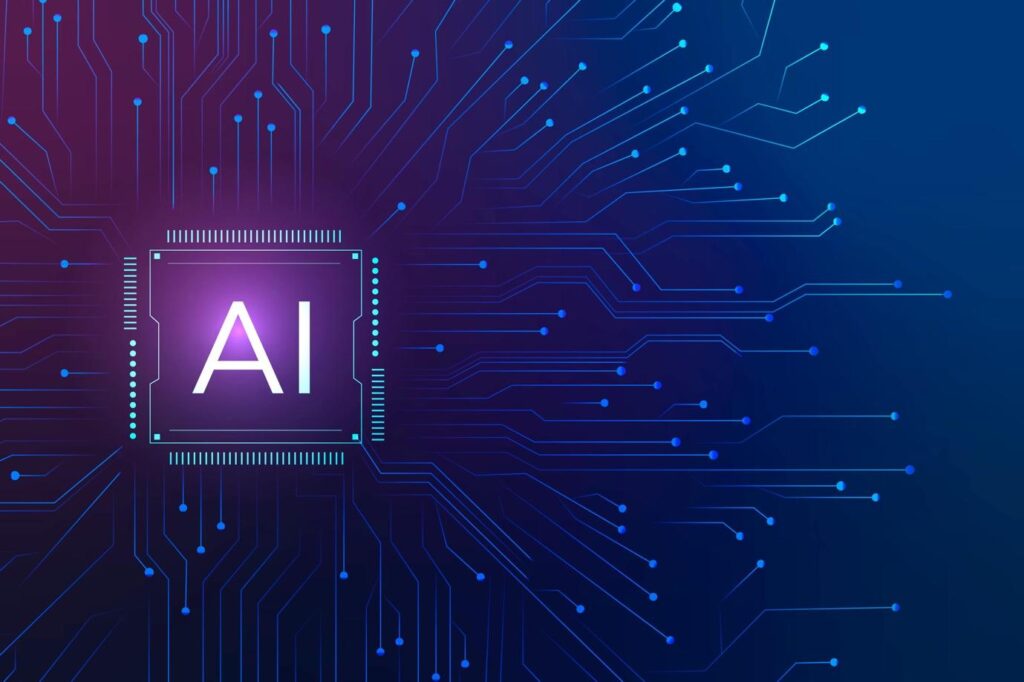
It is crucial for education to adjust to and adopt technological innovations in our constantly changing society. Artificial intelligence (AI) has become a potent technology with great potential for changing how we teach and learn. AI has the power to transform education, creating new opportunities and improving students’ educational experiences.
AI in education delivers individualised learning opportunities that meet the specific needs of each student. Through intelligent algorithms and data analysis, AI can adapt content, pace, and instructional approaches to match students’ unique learning styles and abilities. This personalised approach fosters engagement and boosts student achievement.
Moreover, AI provides interactive and immersive learning experiences. Virtual reality (VR) and augmented reality (AR) technologies powered by AI enable students to explore simulations, visit historical sites, or engage in hands-on experiments, bringing abstract concepts to life and deepening their understanding.
AI also saves time and streamlines administrative tasks, allowing educators to focus more on instruction and student support. Automated grading, data analysis, and administrative processes help alleviate the burden of paperwork, freeing up valuable time for teachers to engage in meaningful interactions with their students.
However, while AI offers numerous benefits, it is crucial to strike a balance. The human touch remains essential in education. The development of social skills, emotional intelligence, and critical thinking receives significant support from teachers. Rather than replacing human connection, AI should be used as a complementary tool to improve the student-teacher relationship and the learning process.
Unlocking Potential: The Pros of Using AI in the Classroom
AI offers a range of benefits that enhance the educational experience and empower students to reach their full potential.
For example, AI enables personalised learning, catering to the unique needs and pace of each student. Through adaptive algorithms and intelligent platforms, students can receive targeted content, exercises, and assessments tailored to their individual strengths and weaknesses. This personalised approach fosters greater engagement and ensures that students can grasp concepts more effectively.
Additionally, AI brings interactive and immersive learning experiences into the classroom. With the aid of virtual reality (VR) and augmented reality (AR) technology, students can explore historical events, carry out scientific experiments, or become fully immersed in other cultures. These activities not only capture students’ attention but also help them comprehend difficult concepts more thoroughly.
Also, AI streamlines administrative tasks, freeing up valuable time for teachers to focus on instruction and student support. Automated grading systems, data analysis tools, and administrative assistants powered by AI help reduce the burden of paperwork and repetitive tasks, allowing teachers to allocate more time for creative lesson planning and individualised attention.
Personalised Learning: Tailoring Education to Individual Needs
In our experience, the ability to provide students with tailored learning experiences is one of the most important potential benefits. With the use of AI technology, we can customise education to suit each student’s needs, creating a more productive and interesting learning environment.
Students can receive individualised education and support based on their particular strengths and areas for development using AI-powered adaptive learning systems. This individualised approach enables students to advance at their own rate while preventing them from falling behind or being held back by a rigid curriculum.
In addition, AI systems can evaluate vast amounts of data and offer insightful information on the interests and learning styles of pupils. With the use of this data, educators can develop specialised learning pathways that are in line with the interests and skills of each student.
Personalised learning also fosters a sense of ownership and motivation among students. They feel appreciated and empowered when they realise that their education is being specifically adapted to their needs and interests. This increases their level of involvement and dedication to their learning process.
The human touch and AI-driven personalisation must, however, coexist in harmony. Although AI might offer helpful support and insights, it should never take the place of devoted teachers. In fostering relationships, offering direction, and supporting students’ overall growth, educators are crucial. When used as an effective tool, AI can assist teachers in fulfilling the unique requirements of each student by enhancing their knowledge and experience.
Critical Thinking Challenges: The Cons of Relying Solely on AI
While the integration of AI in education brings numerous advantages, it also poses critical thinking challenges that educators and students need to address. In our experience, relying solely on AI for learning can hinder the development of essential cognitive skills.
One significant concern is the potential over-reliance on AI-generated answers and solutions. When students solely depend on AI for problem-solving, they may become passive learners, lacking the ability to think critically and independently. It is crucial for educators to encourage students to question, analyse, and evaluate information beyond what AI provides.
Another challenge lies in the risk of algorithmic bias. AI systems are built on vast datasets, and if these datasets contain biases, it can perpetuate unfairness and discrimination. In our diverse school community, it is essential to be mindful of the potential biases present in AI algorithms and ensure that students are exposed to a wide range of perspectives and sources of information.
Creativity and innovation may suffer if students rely solely on AI-generated ideas. AI can provide solutions based on existing patterns, but it may lack the capacity for imagination and thinking “outside the box.” Educators must foster an environment that encourages originality and divergent thinking, promoting human creativity alongside AI support.
Ethical Considerations: Ensuring Fairness and Bias-Free AI
Large volumes of data are used to construct AI systems, and data that has biases might provide discriminating results.
Making sure AI algorithms are created in a fair and impartial manner is one of the main concerns being discussed at the moment. It necessitates a close analysis of both the algorithms’ underlying data and training data. Bias detection and mitigation techniques should be implemented to identify and rectify any potential biases that may arise.
Transparency is another important aspect. Parents, educators, and students should all be fully aware of how AI systems work, what information is gathered, and how choices are made. This openness promotes trust and makes it possible for constructive dialogue about the ethical application of AI in education.
It is crucial to continuously monitor and evaluate AI systems to identify and correct any biases that may emerge over time. Regular audits and reviews of the algorithms can help detect and address any unintended consequences or biases that may have been introduced.
Education institutions also have a responsibility to educate students about AI ethics. By fostering critical thinking and digital literacy skills, students can understand the ethical implications of AI and contribute to shaping a more fair and inclusive technological landscape.
Striking a Balance: Integrating AI as a Complementary Educational Tool
At Harrow International School Hong Kong, we recognise the potential of AI in enhancing the learning experience for our students. However, it is crucial to strike a delicate balance and ensure that AI is integrated as a complementary tool rather than a replacement for human interaction.
AI can undoubtedly offer personalised learning experiences by analysing data and adapting content to individual student needs. It can provide targeted feedback, track progress, and offer tailored resources. This personalised approach can greatly benefit students, allowing them to learn at their own pace and address specific areas of improvement.
We need to keep in mind that education is about more than just academic success. Students’ social and emotional development is equally crucial. AI cannot take the role of human connection, empathy, and collaboration as essential components of the learning process. Teachers are essential in developing these abilities, offering direction, and maintaining a helpful learning atmosphere.
Furthermore, social engagement is the best way to develop critical thinking and problem-solving abilities, which are crucial for future success. Students may form their own opinions, question ideas, and think critically by participating in conversations, debates, and group projects with peers.
Schools must adopt AI responsibly and ethically as we move towards the future of education. To ensure that pupils obtain a well-rounded education that incorporates the best of both worlds, this calls for striking a careful balance between utilising AI’s capabilities and maintaining the indispensable role of human educators.
